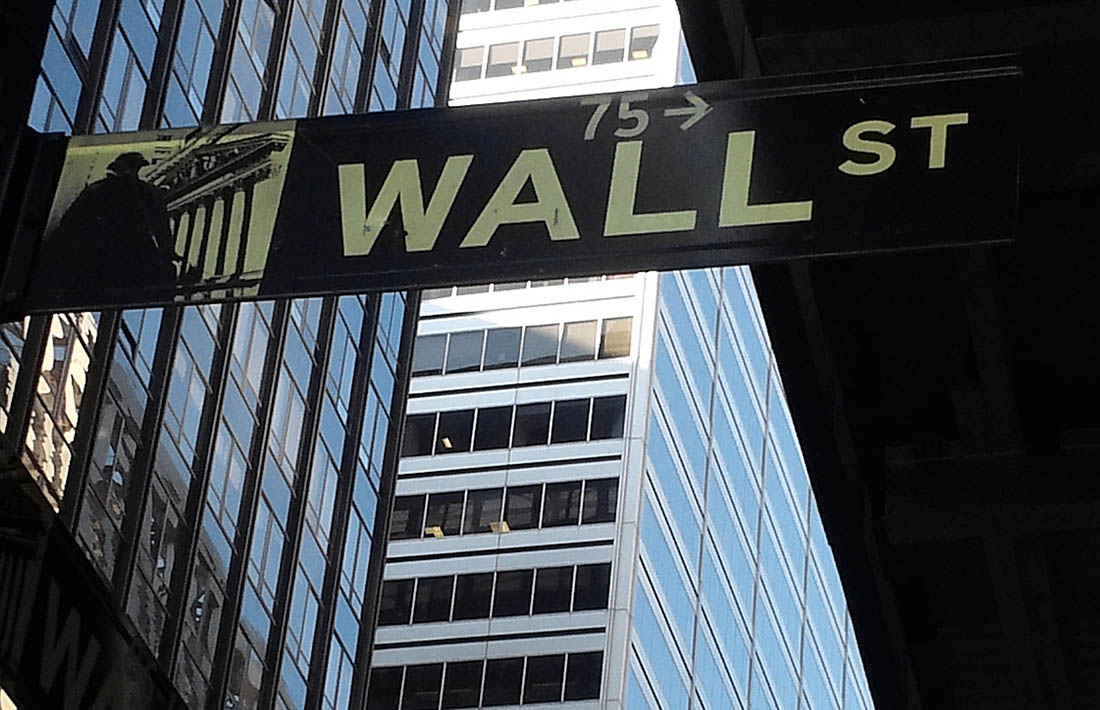(VIANEWS) – STARWOOD PROPERTY TRUST (STWD), Washington Trust Bancorp (WASH), Lakeland Bancorp (LBAI) are the highest payout ratio stocks on this list.
We have collected information concerning stocks with the highest payout ratio at the moment. The payout ratio in itself isn’t a guarantee of good investment but it’s an indicator of whether dividends are being paid and how the company chooses to distribute them.
When researching a potential investment, the dividend payout ratio is a good statistic to know so here are a few stocks with an above 30% percent payout ratio.
1. STARWOOD PROPERTY TRUST (STWD)
109.71% Payout Ratio
Starwood Property Trust, Inc. operates as a real estate investment trust (REIT) in the United States and internationally. The company operates through four segments: Commercial and Residential Lending, Infrastructure Lending, Property, and Investing and Servicing segments. The Commercial and Residential Lending segment originates, acquires, finances, and manages commercial first mortgages, non-agency residential mortgages, subordinated mortgages, mezzanine loans, preferred equity, commercial mortgage-backed securities (CMBS), and residential mortgage-backed securities, as well as other real estate and real estate-related debt investments, include distressed or non-performing loans. The Infrastructure lending segment originates, acquires, finances, and manages infrastructure debt investments. The Property segment engages primarily in acquiring and managing equity interests in stabilized commercial real estate properties, such as multifamily properties and commercial properties subject to net leases, that are held for investment. The Investing and Servicing segment manages and works out problem assets; acquires and manages unrated, investment grade, and non-investment grade rated CMBS comprising subordinated interests of securitization and re-securitization transactions; originates conduit loans for the primary purpose of selling these loans into securitization transactions; and acquires commercial real estate assets that include properties acquired from CMBS trusts. The company qualifies as a REIT for federal income tax purposes and would not be subject to federal corporate income taxes if it distributes at least 90% of its taxable income to its stockholders. Starwood Property Trust, Inc. was incorporated in 2009 and is headquartered in Greenwich, Connecticut.
Earnings Per Share
As for profitability, STARWOOD PROPERTY TRUST has a trailing twelve months EPS of $1.88.
PE Ratio
STARWOOD PROPERTY TRUST has a trailing twelve months price to earnings ratio of 10.31. Meaning, the purchaser of the share is investing $10.31 for every dollar of annual earnings.
The company’s return on equity, which measures the profitability of a business relative to shareholder’s equity, for the twelve trailing months is 9.45%.
2. Washington Trust Bancorp (WASH)
64.53% Payout Ratio
Washington Trust Bancorp, Inc. operates as the bank holding company for The Washington Trust Company, of Westerly that offers various banking and financial services to individuals and businesses. The company operates in two segments, Commercial Banking and Wealth Management Services. The Commercial Banking segment provides various commercial and retail lending products, which include commercial real estate loans consisting of commercial mortgages and construction loans; commercial and industrial loans; residential real estate loans consists of mortgage and homeowner construction loans; and consumer loans comprising home equity loans and lines of credit, personal installment loans, and loans to individuals secured by general aviation aircraft. This segment also offers deposit accounts, including interest-bearing and noninterest-bearing demand deposits, NOW and savings accounts, money market and retirement deposit accounts, and time deposits, as well as debit card, automated teller machine, telephone banking, internet banking, mobile banking, remote deposit capture, and other cash management services. The Wealth Management Services segment provides investment management; financial planning; personal trust and estate services, such as trustee, personal representative, custodian, and guardian; and settlement of decedents' estates, as well as institutional trust services comprising custody and fiduciary services. This segment serves personal and institutional clients. The company also operates as a licensed broker-dealer that offers variable annuities and college savings plans. As of December 31, 2020, it had 10 branch offices located in southern Rhode Island; 12 branch offices located in the greater Providence area in Rhode Island; and 1 branch office located in southeastern Connecticut. Washington Trust Bancorp, Inc. was founded in 1800 and is headquartered in Westerly, Rhode Island.
Earnings Per Share
As for profitability, Washington Trust Bancorp has a trailing twelve months EPS of $3.44.
PE Ratio
Washington Trust Bancorp has a trailing twelve months price to earnings ratio of 8.89. Meaning, the purchaser of the share is investing $8.89 for every dollar of annual earnings.
The company’s return on equity, which measures the profitability of a business relative to shareholder’s equity, for the twelve trailing months is 12.68%.
Moving Average
Washington Trust Bancorp’s worth is above its 50-day moving average of $28.37 and way below its 200-day moving average of $37.59.
Sales Growth
Washington Trust Bancorp’s sales growth is negative 15% for the present quarter and negative 18.5% for the next.
Dividend Yield
According to Morningstar, Inc., the next dividend payment is on Jun 29, 2023, the estimated forward annual dividend rate is 2.24 and the estimated forward annual dividend yield is 7.04%.
Volume
Today’s last reported volume for Washington Trust Bancorp is 21314 which is 85.49% below its average volume of 146914.
3. Lakeland Bancorp (LBAI)
36.71% Payout Ratio
Lakeland Bancorp, Inc. operates as the bank holding company for Lakeland Bank that provides various banking products and services for individuals and small to medium sized businesses. The company offers commercial banking services, including savings, money market, and time accounts, as well as demand deposits; lending solutions, such as short and medium term loans, lines of credit, letters of credit, inventory and accounts receivable financing, real estate construction loans, mortgage loans, small business administration loans, commercial real estate loans, commercial and industrial loans, and equipment financing, as well as merchant credit card services; and internet banking, mobile banking, wire transfer, night depository, and cash management services. It also provides consumer banking services comprising checking accounts, savings accounts, money market accounts, certificates of deposit, secured and unsecured loans, consumer installment loans, mortgage loans, and safe deposit services. In addition, the company offers investment advisory services; and non-deposit products, which include securities brokerage services, including mutual funds and variable annuities, as well as commercial title insurance services and life insurance products. It operates 48 branch offices throughout Bergen, Essex, Morris, Ocean, Passaic, Somerset, Sussex, and Union counties in New Jersey and Highland Mills, New York; six New Jersey regional commercial lending centers in Bernardsville, Iselin, Jackson, Montville, Teaneck, and Waldwick; and one commercial lending center in New York to serve the Hudson Valley region. The company was founded in 1969 and is headquartered in Oak Ridge, New Jersey.
Earnings Per Share
As for profitability, Lakeland Bancorp has a trailing twelve months EPS of $1.68.
PE Ratio
Lakeland Bancorp has a trailing twelve months price to earnings ratio of 8.82. Meaning, the purchaser of the share is investing $8.82 for every dollar of annual earnings.
The company’s return on equity, which measures the profitability of a business relative to shareholder’s equity, for the twelve trailing months is 9.43%.
Dividend Yield
According to Morningstar, Inc., the next dividend payment is on Aug 3, 2023, the estimated forward annual dividend rate is 0.58 and the estimated forward annual dividend yield is 3.9%.
Sales Growth
Lakeland Bancorp’s sales growth is negative 13.9% for the ongoing quarter and negative 12.7% for the next.
Yearly Top and Bottom Value
Lakeland Bancorp’s stock is valued at $14.81 at 08:23 EST, way under its 52-week high of $20.02 and way above its 52-week low of $11.89.
Moving Average
Lakeland Bancorp’s worth is above its 50-day moving average of $14.32 and under its 200-day moving average of $16.42.
4. Mid-Southern Bancorp (MSVB)
30.77% Payout Ratio
Mid-Southern Bancorp, Inc. operates as the holding company for Mid-Southern Savings Bank, FSB that provides various banking products and services. It accepts various deposit products, including savings, money market deposit, and demand accounts, as well as certificates of deposit. The company also offers loans secured by first mortgages on one- to four-family residences, including home equity loans and lines of credit; commercial and multifamily real estate loans; construction loans secured by single-family residences; commercial and multifamily real estate loans; land and lot loans; commercial business loans; consumer loans, including new and used manufactured homes, automobiles and truck, boats, and motorcycles and recreational vehicle loans; loans secured by savings deposits and other personal loans; and unsecured consumer loans. In addition, it holds and manages an investment securities portfolio. The company provides its products and services through its main office in Salem; and through its branch offices located in Mitchell and Orleans, Indiana, as well as through a loan production office located in New Albany, Indiana. The company was founded in 1886 and is headquartered in Salem, Indiana.
Earnings Per Share
As for profitability, Mid-Southern Bancorp has a trailing twelve months EPS of $0.65.
PE Ratio
Mid-Southern Bancorp has a trailing twelve months price to earnings ratio of 17.15. Meaning, the purchaser of the share is investing $17.15 for every dollar of annual earnings.
The company’s return on equity, which measures the profitability of a business relative to shareholder’s equity, for the twelve trailing months is 4.76%.
Revenue Growth
Year-on-year quarterly revenue growth declined by 0.4%, now sitting on 8.63M for the twelve trailing months.
1. 1 (1)
1% Payout Ratio
1
Earnings Per Share
As for profitability, 1 has a trailing twelve months EPS of $1.
PE Ratio
1 has a trailing twelve months price to earnings ratio of 1. Meaning, the purchaser of the share is investing $1 for every dollar of annual earnings.
The company’s return on equity, which measures the profitability of a business relative to shareholder’s equity, for the twelve trailing months is 1%.
Dividend Yield
As maintained by Morningstar, Inc., the next dividend payment is on Jan 1, 1970, the estimated forward annual dividend rate is 1 and the estimated forward annual dividend yield is 1%.
Earnings Before Interest, Taxes, Depreciation, and Amortization
1’s EBITDA is 1.
Stock Price Classification
According to the stochastic oscillator, a useful indicator of overbought and oversold conditions, 1’s stock is considered to be overbought (>=80).










